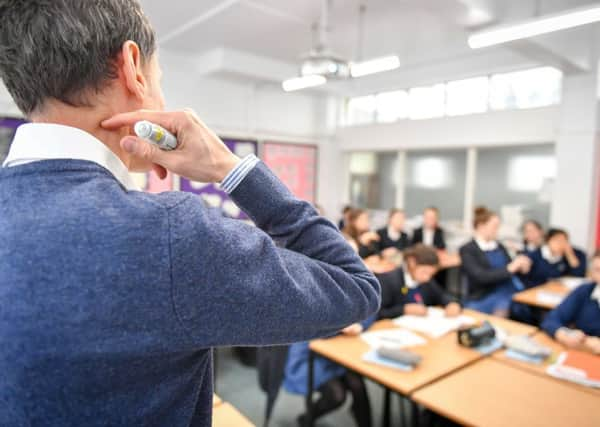GP Taylor: Learning to understand why parents, like me, educate their children at home


For the first few years of her school life, my daughter was taught at home. It was all the usual stuff – English, maths, reading, writing and science. Lessons became part of our daily routine and education became a way of life for all of us.
We would often meet up with others in the same boat and my young girl developed good foundational skills.
Advertisement
Hide AdAdvertisement
Hide AdAt the age of 10, she went back into state education and excelled in her GCSEs and A-Levels, ending up with a university degree.
A lot of the people we knew thought we were weird and, in one annual assessment, my boss wrote: “I am glad to say his daughter now attends school.”
It was as if society could not understand why someone should ever want to educate their child at home. They felt affronted and threatened by home schooling. To us, it was just a very normal way of life.
Regardless of what the world may think, home education is on the increase with significant numbers of children being taken out of school each year. Nearly 50,000 children in the UK now have lessons at home and the number is growing. That is equivalent to 49 average-sized secondary schools. In the US, there are well over one million children not in school. Yet, in Germany, home schooling is illegal.
Advertisement
Hide AdAdvertisement
Hide AdIn England, education is compulsory, but going to school is not.
Many parents are becoming disillusioned with school as more and more educational establishments start to fail their pupils. Fears of gangs, violence, drugs, pornography and bullying are valid concerns.
A recent survey by the GMB union said that out of 70,000 teaching support staff, 23,000 said they were attacked on a weekly basis. Not the kind of environment where parents want their children to feel safe. Only last week, teachers at a school in Gateshead went on strike because of the bad behaviour of pupils.
Some parents remove their children from school because they do not like the toxic pressure placed on their children to attend when they are sick. How weird is it to reward children to go to school even if they are ill?
Advertisement
Hide AdAdvertisement
Hide AdI know of a school in North Yorkshire that gives sugar-crammed biscuits to the class with the best weekly attendance – how healthy is that?
Another school in Sunderland rewards high attenders with ice cream. Those who have been sick have to look on while their fitter classmates lick-in to tasty treats.
Some schools even threaten low-attending children with a visit from social services, while a school in Scarborough threatened to do this to parents who brought their children in late.
What is the obsession with wanting to turn young minds into workaholics prepared to battle through physical and mental ill-health? What example does it set for later life?
Advertisement
Hide AdAdvertisement
Hide AdNo wonder some parents, fed up with the bully-boy tactics of schools, now want to educate their children at home.
Society has to get over the obsession that a good education means you have to go to school.
In many classrooms, teachers do not have the time or resources to help children with special needs such as dyslexia. Students with this type of condition often miss out. Home education with the right resources can benefit them greatly.
Home school can go at a pace that suits the child. Spend a day in any school and you will be shocked to see how little time is actually spent in a proper learning environment.
Advertisement
Hide AdAdvertisement
Hide AdGetting stuff out, assembly, putting stuff away, lunch, playtime and the teacher screaming at some unruly kid all eat into learning time. Out of the six hours a child may spend at school, you may be lucky to get two hours work out of them.
Dr Carrie Herbert, the founder of The Red Balloon, a charity for children outside mainstream education, said the rise in home schooling suggested ‘something quite tragic about the state of the education system’.
The one-size-fits-all approach to education is outdated and not fit for purpose in the all-inclusive and diverse society in which we live. As there are many different types of family, so there should be many different types of education.
Not every child will benefit from being educated at home, but not every child will benefit from being educated at school.
Advertisement
Hide AdAdvertisement
Hide AdGovernment has to be flexible in its approach to education and if they want to stop parents from home schooling, then I suggest that they start to sort out the growing problems and petty obsessions dogging state education in our county.
GP Taylor is an author and broadcaster from Whitby.